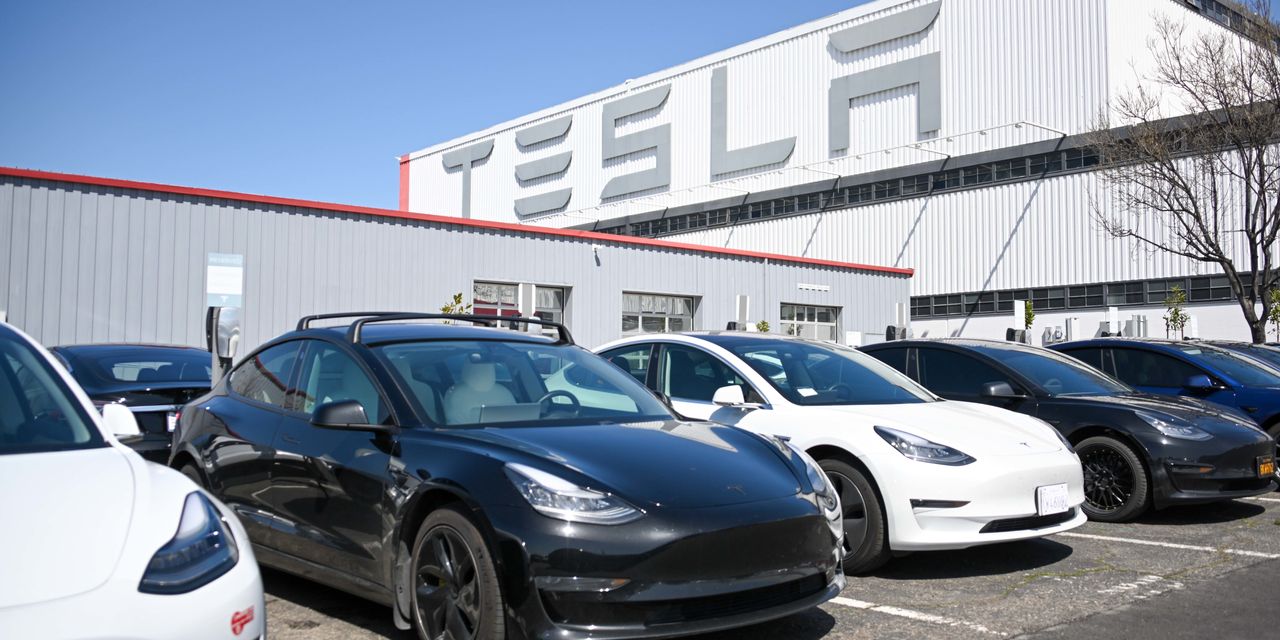
A California regulatory agency has sued Tesla Inc. TSLA -2.95% for alleged racial discrimination and harassment, saying the electric-vehicle maker turned a blind eye to years of complaints from Black factory workers.
The California Department of Fair Employment and Housing’s complaint filed Wednesday targets alleged workplace issues at Tesla’s principal U.S. car plant, located in the San Francisco Bay Area.
“After receiving hundreds of complaints from workers, DFEH found evidence that Tesla’s Fremont factory is a racially segregated workplace where Black workers are subjected to racial slurs and discriminated against in job assignments, discipline, pay, and promotion creating a hostile work environment,” Kevin Kish, the agency’s director, said in a written statement.
Tesla didn’t respond to requests for comment.
The company criticized the civil-rights agency’s investigation in a blog post that pre-empted the lawsuit. “Tesla strongly opposes all forms of discrimination and harassment and has a dedicated Employee Relations team that responds to and investigates all complaints,” the company said Wednesday.
Tesla, in the blog post, also cited its status as a manufacturing employer in the state. “Tesla is also the last remaining automobile manufacturer in California. The Fremont factory has a majority-minority workforce and provides the best paying jobs in the automotive industry to over 30,000 Californians,” the company said, adding that legal action was “unfair and counterproductive.” Tesla moved its headquarters to Texas from California last year, though it still makes a large portion of its cars in California.
The auto industry has long faced issues of discrimination on the factory floor.
For instance, in 2017, Ford Motor Co. agreed to pay as much as roughly $10 million to settle sexual- and racial-harassment claims brought by individuals at two Chicago-area plants. The settlement followed an investigation by the U.S. Equal Employment Opportunity Commission, which said it found female and African-American employees had been subject to harassment. Unlike at Tesla, factory workers at other U.S. auto makers are organized by the United Auto Workers union, which represents them in their dealings with the companies, including on workplace issues.
The Department of Fair Employment and Housing, in its lawsuit against Tesla, is seeking unspecified monetary damages, as well as relief including job reinstatement and payment of lost wages and benefits.
The agency said in its lawsuit that Black workers routinely heard Tesla supervisors and managers using racial slurs and were confronted with racist graffiti in the factory. One Black worker heard racial slurs as often as 50 to 100 times a day, the agency said.
Black workers also reported being assigned to more physically demanding roles, experiencing more severe discipline and being passed over for professional opportunities, the agency said. Black workers were severely underrepresented in managerial and other professional roles, the agency said.
Tesla said in a 2020 diversity report that Black employees made up 10% of its U.S. workforce and 4% of people in leadership roles. The Department of Fair Employment and Housing said in the lawsuit that Black workers make up roughly 3% of professionals at the Fremont, Calif., plant and about 20% of factory operatives.
“Tesla’s brand, purportedly highlighting a socially conscious future, masks the reality of a company that profits from an army of production workers, many of whom are people of color, working under egregious conditions,” the agency said in its lawsuit, adding that Tesla’s investigations of complaints aren’t compliant with the law.
Shares in Tesla fell 3% to close at $904.55 on Thursday.
A federal jury in San Francisco last year found that Tesla had subjected a Black former contract worker to a racially hostile work environment, awarding him roughly $137 million in damages. Tesla has said it doesn’t believe the verdict is justified and has asked for a new trial or for the damages to be reduced.
Another Black former Tesla worker, Melvin Berry, won a $1 million judgment last year after an arbitrator found that his supervisors at the Fremont factory called him a racial slur. Tesla was obligated to investigate and stop the racial discrimination and failed to do so, the arbitrator said in her order. Tesla said that any actions the company took weren’t racially based, according to the order.
Tesla has also faced allegations of sexual harassment in California. More than half a dozen current and former Tesla workers sued the company late last year alleging that Tesla failed to prevent sexual harassment at its facilities, among other claims. Tesla has said it intends to try to move those cases into private arbitration, court records show.
The Department of Fair Employment and Housing has brought other high-profile cases. The California regulator last year sued Activision Blizzard Inc., accusing the videogame company of paying female employees less than their male counterparts, among other claims. The company pushed back against the allegations. Microsoft Corp. in January agreed to buy Activision.
This isn’t the first time Tesla has clashed with California officials. Nearly two years ago, early in the coronavirus pandemic, Chief Executive Elon Musk took aim at a high-ranking county health official in California over government orders that the company’s Fremont vehicle-assembly plant remain temporarily closed to slow the spread of Covid-19.
Write to Rebecca Elliott at [email protected]
Copyright ©2022 Dow Jones & Company, Inc. All Rights Reserved. 87990cbe856818d5eddac44c7b1cdeb8








